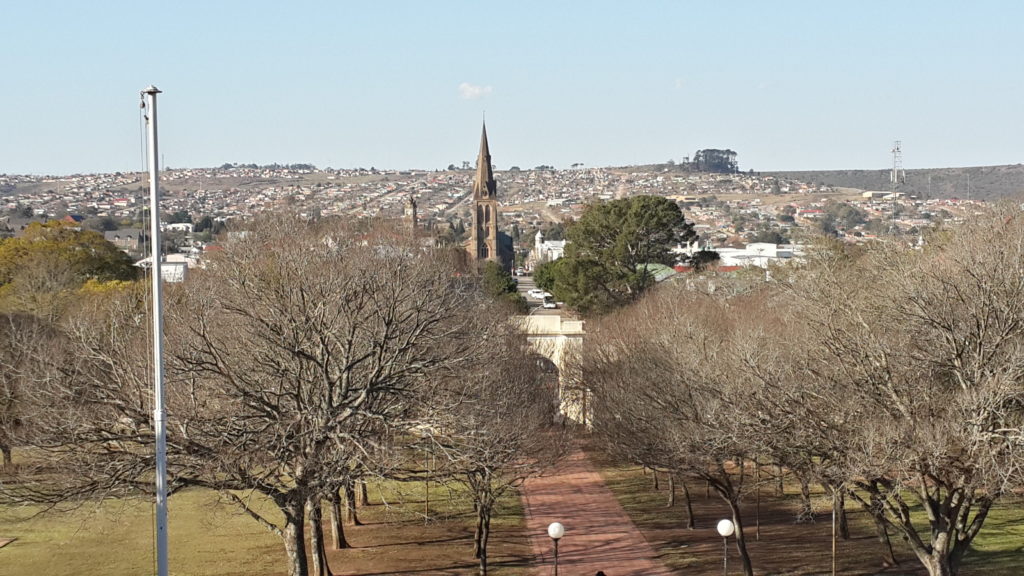A multi-disciplinary Outbreak Response Team for the Department of Health’s Makana Sub-District has been established to manage potential incidences of Covid-19 and the Department of Education has issued guidelines for containing and managing the disease, should any learner or staff be diagnosed with it.
Grocott’s Mail last week spoke to the municipality, the Department of Education and the Department of Health to establish what plans and precautions are in place in Makhanda for a possible incidence here of COVID-19.
Director: Public Safety and Community Services for Makana Municipality Kelello Makgoka referred our query to the Department of Health, which leads the outbreak response team. “My office is in contact with the DOH,” Makgoka said. “Only our health inspectors will form part of the response team.”
The Department of Health’s Makana Subdistrict yesterday issued its report on plans to contain and manage COVID-19 at a local level.
A multi-disciplinary Outbreak Response Team for the Makana Sub-District has been established, comprising environmental health practitioners (including Makana’s), practitioners from the Subdistrict in Maternal Child and Women’s Health, Health Promotion, Primary Health Care, Quality Assurance and Data Capture. Also on the response team are representatives from the National Health Laboratory Service, Emergency Medical Services, the State Vet, Disaster Management, the Education Department, experts in infection control and a virologist. Also listed are a private doctor, Rhodes University, Correctional Services, the SANDF, Stenden University and 43 Air School in Port Alfred.
According to the Subdistrict’s report, clinics have been provided with the National Institute for Communicable Diseases guidelines and staff have been trained in case definition, management of suspect cases and precautionary measures to prevent the spread of the disease.
When there is a suspected case at a clinic, the person will be transported to Settlers Hospital for further investigation and isolation. Settlers, according to the report, has an isolation room, a sampling kit ready for suspected cases and a doctor who has undergone training in how to handle positive coronavirus cases. This doctor has trained the other health care providers in the facility.
An audit of primary health facilities has been conducted to check if the necessary equipment such as aprons, respirators, hand soap and hand rub are present and clinic supervisors and Environmental Health are busy with a readiness checklist for coronavirus at the clinics.
Health education, says the report, is ongoing and has started with the clinics. Health promotion would be conducted at schools from Monday 16 March and the Department of Education had been issued with guidelines for preventing and managing coronavirus in local education institutions.
Grocott’s Mail will continue to report.
https://www.grocotts.co.za/2020/03/16/makhanda-schools-in-covid-19-lockdown/
What is the World Health Organisation doing?
The World Health Organisation (WHO) explains that coronaviruses are a large family of viruses which may cause respiratory infections ranging from the common cold to more severe diseases, such as Middle East Respiratory Syndrome (MERS) and Severe Acute Respiratory Syndrome (SARS). COVID-19 is the most recent. Common signs of infection include respiratory symptoms, fever, cough, shortness of breath and breathing difficulties. In more severe cases, infection can cause pneumonia, severe acute respiratory syndrome and kidney failure. The current outbreak of coronavirus disease (COVID-19) was first reported from Wuhan, China, on 31 December 2019.
WHO has officially described the global outbreak of the disease as a pandemic because of the speed and scale of transmission, with almost 125,000 cases now been reported to WHO, from 118 countries and territories.
“In the past two weeks, the number of cases reported outside China has increased almost 13-fold, and the number of affected countries has almost tripled,” WHO Director-General Tedros Adhanom Ghebreyesus said in a briefing on 12 March.
“This is a controllable pandemic,” Ghebreyesus said, outlining a four-pronged strategy: Prepare and be ready; detect, prevent and treat; reduce and suppress; innovate and improve.
Actions Ghebreyesus said WHO had taken to support all countries:
-
Shipped supplies of personal protective equipment to 57 countries. “We’re preparing to ship to a further 28, and we’ve shipped lab supplies to 120 countries.”
-
Published a research and development roadmap, with a set of core protocols for how studies should be done.
-
Published a comprehensive package of technical guidance;
-
Had more than 176,000 enrolments in their COVID training courses on OpenWHO;
-
Are working with the World Economic Forum and the International Chambers of Commerce to engage the private sector and are working with FIFA.
-
More than 440 million US dollars pledged to WHO’s Strategic Preparedness and Response Plan.


